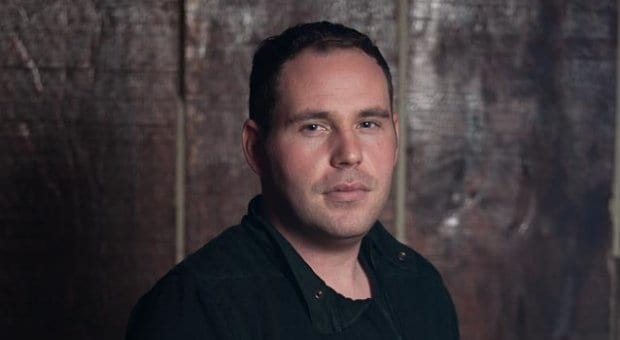The Canadian Forces has rejected a gay man’s application to train cadets because of the “sexual nature” of his social media persona and website.
Having spent six years in the Canadian Forces’ cadet program as a youth, Rick Renaud applied four times in the last three years to become an officer in the Cadet Organization Administration and Training Services.
“They look at everything. Past jobs, your credit history and loans that you have out. They basically dive into your personal life,” Renaud says, acknowledging that one rejection was due to an outstanding phone bill.
Renaud also admits that on one occasion he went to the Forces’ recruitment office in London to ask why his file was taking so long to be processed. The Forces deemed his interaction at the office “belligerent” and added this to his file.
Despite his visit to the office, Renaud says recruiters still scheduled an interview and medical examination with him, only to cancel both before they could take place.
That’s when he asked to see his file. According to Renaud, it indicated that his past employment was a factor in the Forces’ decision that he was unsuitable for service.
“It was a gay bar that I worked at. They took that against me,” says Renaud, whose whole family has served in the Forces and who promised his grandfather that he would, too.
As a last resort, he wrote to Minister of Defence Peter MacKay, asking if the reasons he uncovered in his file were really the deciding factors in his rejection.
The letter Renaud received in response was not from MacKay but rather was written by Brigadier-General JPL Meloche, commander of the Canadian Forces recruiting group.
In the letter, Meloche confirms that Renaud’s past employment and his use of social media and his website to broadcast his “participation in activities of a sexual nature” were factors in the Forces’ determination that he is “unsuitable” to work with youth.
“A key component of the screening process takes into account an applicant’s suitability to work with youth (12-18 years) in addition to their ability to positively represent the CAF as a commission officer,” Meloche writes.
“During a review of your application, which included a review of your previous employment and suitability screening, it was identified that you actively use social media and the internet (Facebook and a website identified as www.rickrenaud.net) to publicly broadcast photographs as well as your participation in activities of a sexual nature,” Meloche writes.
“While the public promotion, advertisement or broadcast of a consensual adult sexual activity on social media would not preclude eligibility for enrolment as an officer or non commissioned member in the Primary Reserve or Regular Force, it will make an individual unsuitable for specific service as a CIC [Cadet Instructor Cadre] officer,” Meloche continues.
“Rickrenault.net is event planning, what I do on the side to help out charity and the gay scene,” Renaud explains. “So because of that they quote the sexual nature of my events; that’s why I’m deemed unsuitable.
“Anybody can have events and do stuff for charity. Why am I being singled out because they are gay events?” he asks. “That’s what it looks like to me.”
Renaud’s photos of his charity events do not feature any explicit sexual imagery but do contain allusions to games such as “sex toy bingo.”
“The public disclosure of behaviour of this kind by any CIC officer is particularly concerning when it is conveyed in a manner that may be accessible to cadets,” Meloche writes.
Meloche stresses the importance of CIC officers maintaining separate private and public personas once they’re employed by the Forces. The public persona is strictly governed by Forces regulations, which establish rules of conduct for officers working in a program “strictly designed for youth,” he writes.
“An officer’s choice to use social media to publicly convey explicit information regarding sexual activities has the potential to reflect discredit on the Cadet Program, including any member involved in it if this information is seen by any member of the public, to include both parents and cadets,” Meloche says.
“When such activity is encountered during enrolment screening, it is an indication that the applicant may have difficulty safeguarding the public persona that will be granted to them as an incident of their enrolment as a CIC officer in the Cadet Program,” Meloche concludes.
The Forces are saying gay men are not suitable to work with youth, Renaud contends.
Major Richard Langlois, public affairs officer with the Canadian Forces recruiting group, confirms that “to be eligible for enrolment as an officer in the Cadet Instructors Cadre, a person must, among other things, be deemed of good character and standing in the community and be recommended by the Commanding Officer, the sponsor and the appropriate League representative associated with the cadet corps.”
Though he says he can’t discuss details pertaining to specific applicants due to privacy laws, he tells Xtra via email that “the applicant’s employment was not a factor in the decision. An event held in a bar does not constitute an activity of a sexual nature.”
However, he reiterates Meloche’s concern about publicly broadcasting involvement in sexual activities.
“A Cadet Instructor Cadre officer’s public persona is strictly governed by the Queens Regulations and Orders and the Cadet Instructor Cadre Officer Assessment Protocol, which establishes rules for the conduct of military members enrolled in the CAF. These rules serve to maintain the public’s trust in officers to work within a cadet program strictly designed for youth,” he says.
“A Cadet Organizations Administration and Training Service applicant who publicly conveys explicit information regarding sexual activities has the potential to reflect discredit on the Cadet Organizations Administration and Training Service program and other members involved in it,” he adds, reiterating Meloche’s message word for word.


 Why you can trust Xtra
Why you can trust Xtra


